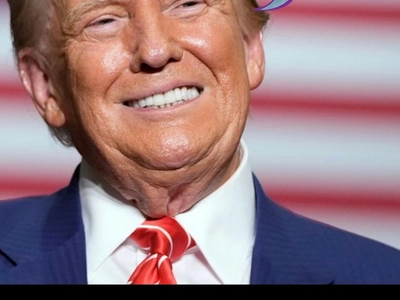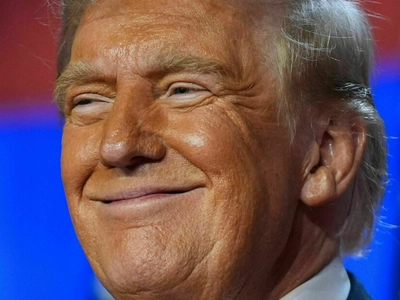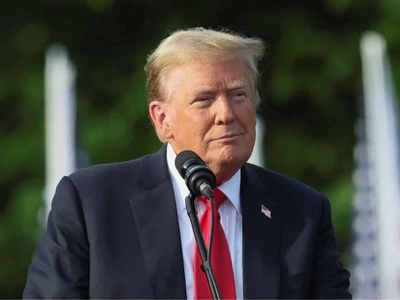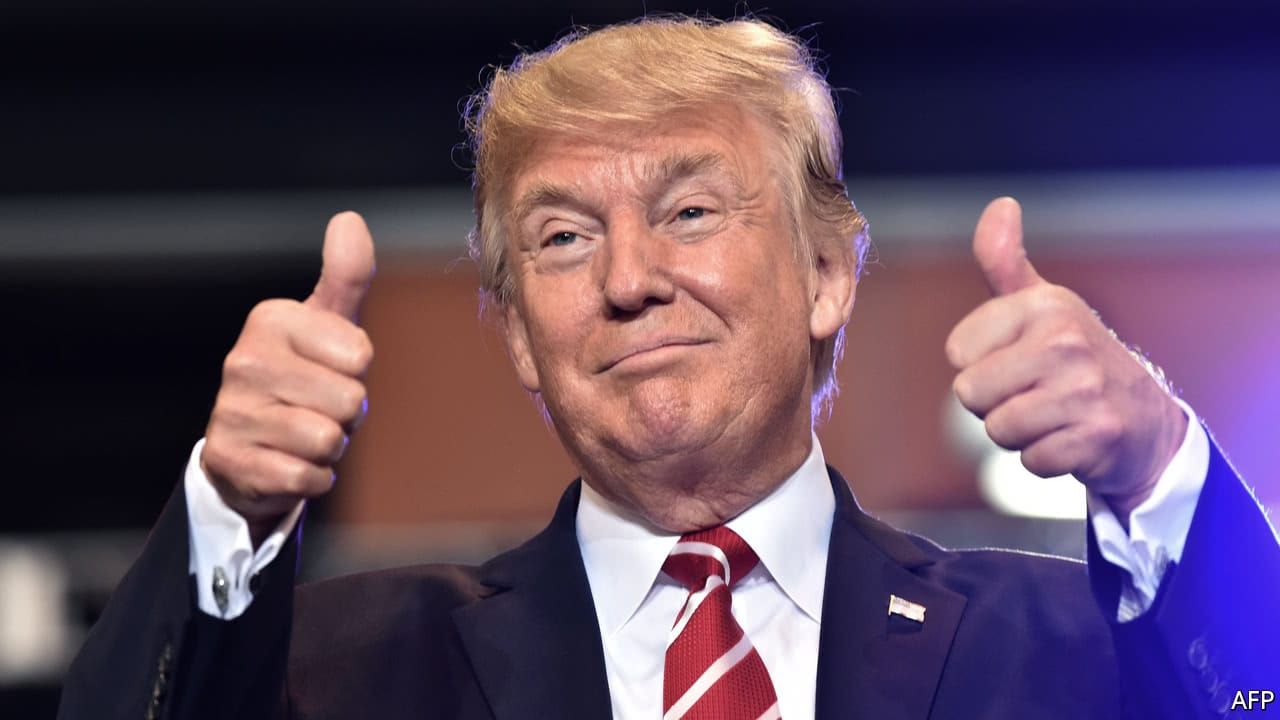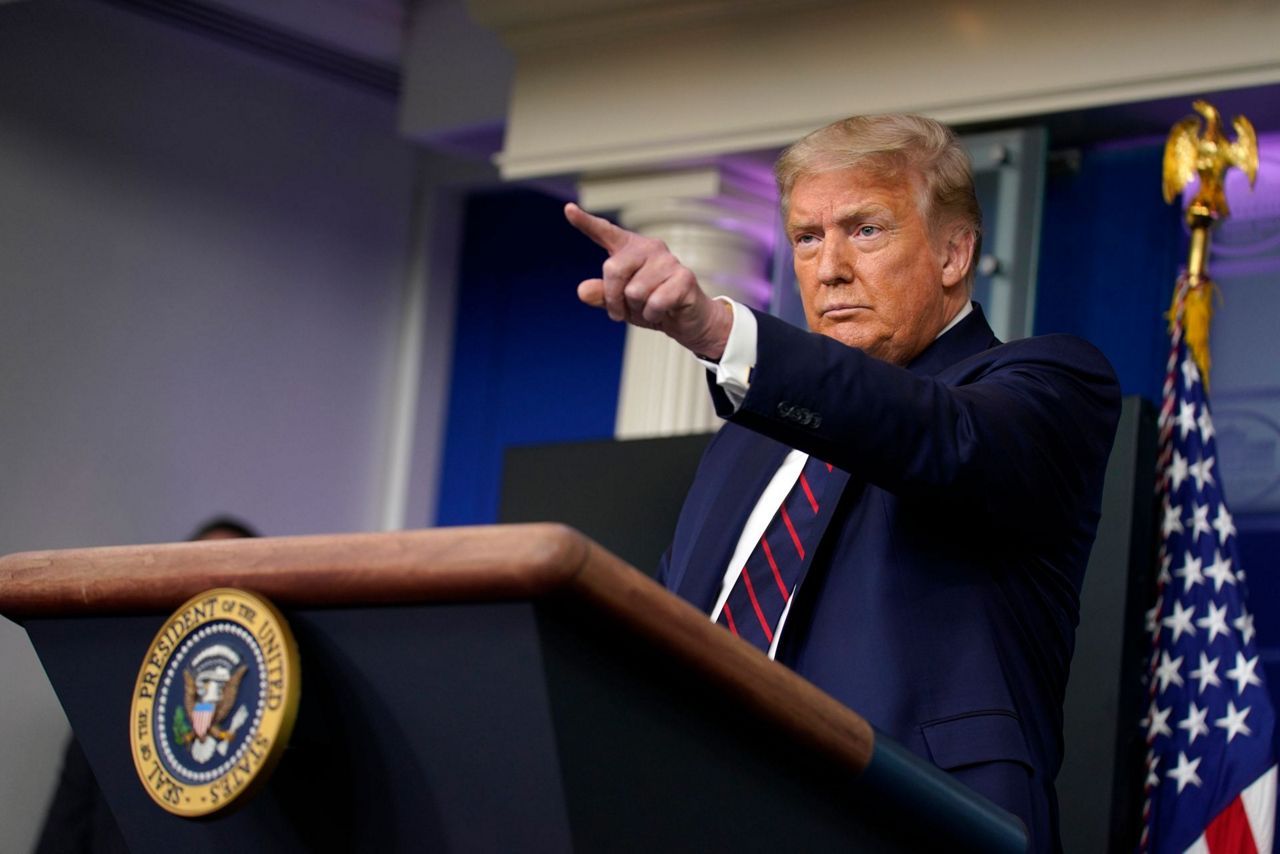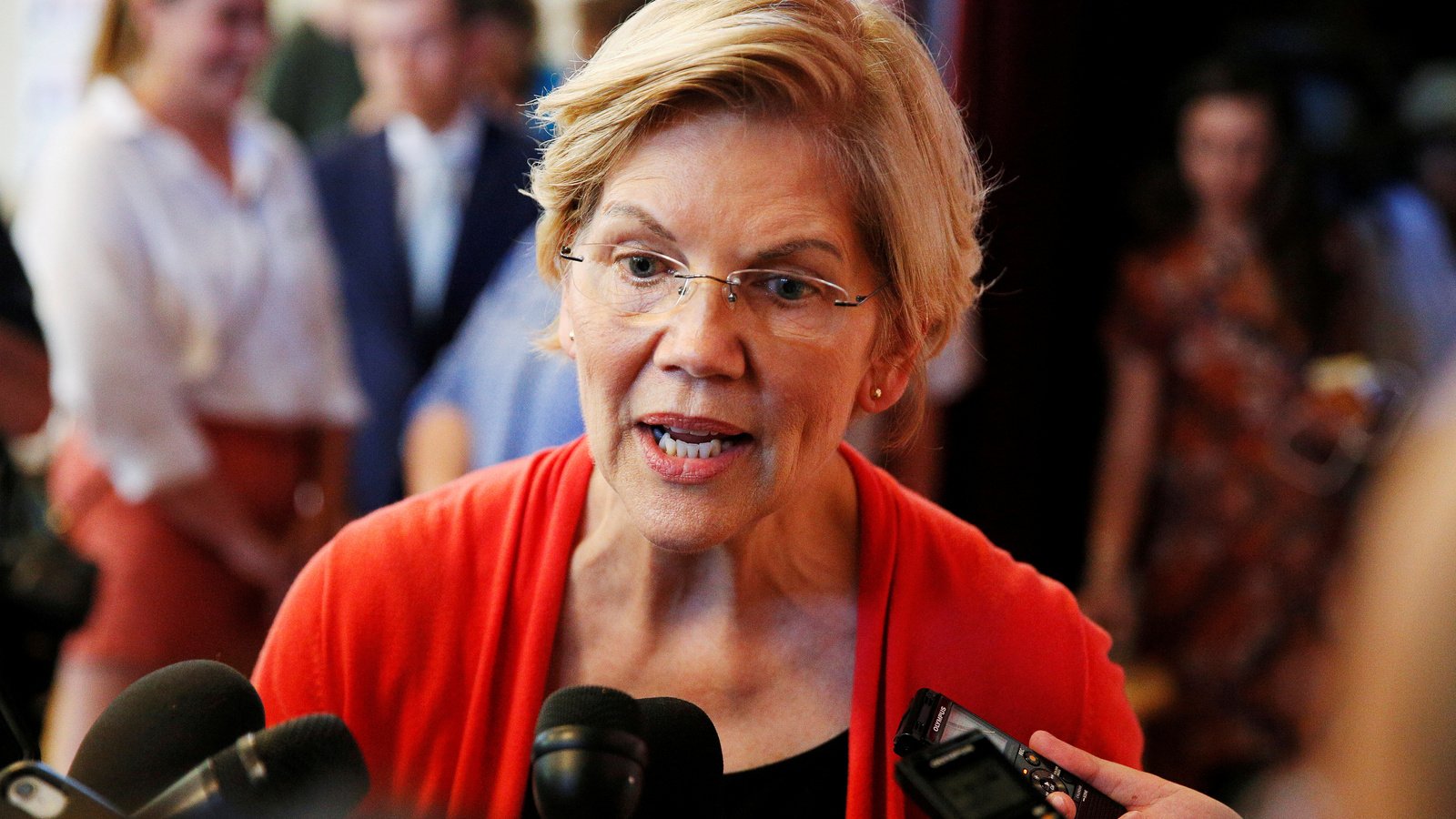Donald Trump is asking supporters for donations to ‘get him to heaven’ and people are confused
In a strange twist that has left both supporters and critics bewildered, Donald Trump once again found himself in the spotlight, not for a rally or a policy announcement, but for an email that read more like the script of a surreal play than a message from the president of the United States. The message, sent out under the name of Never Surrender, Inc., reportedly urged his followers to send him $15 so that he could “get to heaven.” For a man who has spent decades projecting strength, defiance, and invincibility, the mixture of mortality, money, and divine destiny in one email created a storm of confusion and commentary online.
The timing of this peculiar message could not have been stranger. Only a few days earlier, Trump had been forced to deny rumors that he was already dead. The whispers had started when he hadn’t been seen in public since August 27. For a politician as present and noisy as Trump, even a short silence can ignite speculation. Soon, social media began spinning conspiracy theories, and searches like “Is Trump dead?” shot to the top of Twitter’s trending topics. For a brief moment, corners of the internet were convinced the 79-year-old president had quietly passed away and that the news was being kept from the public.
Trump, of course, did not let such rumors fester for long. On August 31, he hopped onto Truth Social and declared that he had “never felt better.” A few days later, on September 2, he dismissed the theories as “fake news” while standing in the Oval Office. It was the kind of denial only Trump could deliver: confident, dismissive, and wrapped in his familiar disdain for the press. Yet, before the dust could even settle, this bizarre email landed in the inboxes of his followers, reigniting the whirlwind of attention.
According to Metro, which shared a screenshot of the email, Trump invoked his near-death experience during an assassination attempt. In the message, he described how “God saved him” and linked his survival to his mission to “Make America Great Again.” The words carried a strange mix of vulnerability and bravado. “I want to try and get to Heaven,” the email began, before recounting the chilling moment when a bullet had nearly ended his life. He declared that his return to the White House “was never supposed to happen,” but that divine intervention had spared him.
“I wasn’t supposed to beat Crooked Hillary in 2016 – but I did,” he continued. “I wasn’t supposed to secure the border and build the greatest economy in history – but I did. I certainly wasn’t supposed to survive an assassin’s bullet, but by the grace of the almighty God, I did.” The message built to a crescendo of urgency, with Trump framing himself as a man carrying the weight of destiny. The only way forward, he said, was to “answer the Call to Duty,” though he insisted he could not do it alone. His supporters, he argued, needed to rise with him.
That’s when the fundraising hook came in. Trump announced a “24-HOUR TRUMP FUNDRAISING BLITZ,” urging everyone to send in $15 to mark the moment in history. The email promised that their contributions would fuel a fight in which, as he put it, “we will NEVER back down, NEVER give an inch, and NEVER SURRENDER.” For those who have followed Trump’s political career, the language sounded familiar. The calls to defiance, the imagery of battle, the capital letters—all of it echoed the style of his rallies and campaign slogans. Yet, placed next to appeals for salvation and references to heaven, the effect was jarring even by Trumpian standards.
The reaction online was swift and biting. As the email circulated on Twitter, users mocked its contents. “That ain’t gonna work,” one wrote. Another quipped, “He knows they’ll pay up.” A third chimed in with the blunt observation: “Money won’t get him to heaven!” Critics and commentators highlighted the strangeness of a sitting president openly tying faith, mortality, and a specific donation amount into a single pitch.
Religion, however, is not a new theme in Trump’s public persona. Just last month, during an interview with Fox and Friends, he made remarks that also touched on heaven. “If I can save 7,000 people a week from being killed, I think that’s pretty good,” he said. Then, with a touch of unusual humility, he added: “I want to try to get to heaven if possible. I’m hearing I’m not doing well. I’m really at the bottom of the totem pole.” The comments raised eyebrows, especially from those who have rarely heard Trump speak about his own spiritual fate in such candid terms.
He even speculated about what might tip the scales in his favor. If he could broker peace between Ukraine and Russia, he suggested, that accomplishment might just be “one of the reasons” he could enter the golden gates. For a man whose political brand has long leaned on strength, success, and never admitting weakness, such musings about heaven and his place in it felt oddly out of character. And yet, here they were, woven into both interviews and now a direct fundraising plea.
The narrative Trump spun in the email played into his well-known mythology of beating the odds. From the 2016 election against Hillary Clinton, which he framed as a battle against the entire political establishment, to his survival of an assassin’s bullet, Trump positioned himself as the chosen one, the survivor who could not be stopped. In his telling, every victory was not just a win but a miracle, proof of divine favor. And now, he extended that narrative into the ultimate arena: eternal life.
For his supporters, the blending of religion and politics was not necessarily shocking. Many of them have long viewed Trump as a kind of divinely appointed leader, a flawed vessel chosen for a greater purpose. His survival of the assassination attempt only strengthened that belief among the faithful. By linking his political mission with the idea of heaven, Trump reinforced the idea that his fight was not just for policies or elections but for something far larger.
But outside his base, the email came across as bizarre, even desperate. The specific ask for $15 felt cheap to critics, a crass way to tie spiritual salvation to political fundraising. Some commentators joked that heaven had a cover charge. Others wondered if Trump had finally crossed a line into self-parody, his bombastic style collapsing under the weight of its own exaggerations.
Still, the spectacle had the intended effect: people were talking about him. Whether they laughed, rolled their eyes, or shook their heads, the conversation was centered on Trump, once again dominating headlines and social media feeds. For a politician who thrives on attention, even baffling attention can be a kind of victory.
The strange mix of mortality and money also underscored Trump’s unique relationship with his followers. Unlike most politicians, who might tread carefully when discussing death or religion, Trump leaned directly into both and tied them to a very specific fundraising deadline. It was a move that many other leaders could never attempt without backlash, yet for Trump, the shock value itself became part of the appeal.
At seventy-nine, Trump is no stranger to questions about his age, health, and future. Rivals and critics often suggest that he is too old for the rigors of the presidency, while his supporters dismiss such claims and point to his relentless energy. The rumors of his death, while absurd, played into this ongoing narrative battle. His own insistence that he was “never better” was both a denial and a reaffirmation of his resilience. Against this backdrop, the email about heaven felt like another strange chapter in his ongoing effort to define himself on his own terms.
Even as people ridiculed the email, it also revealed something about the current political landscape in America. Faith, conspiracy, mortality, and money are not separate threads but often woven together in ways that can feel surreal to outsiders. Trump’s ability to blend all of these elements into a single message is both his strength and his oddity. To his critics, it shows a reckless disregard for dignity and truth. To his fans, it proves he is willing to say what others will not, no matter how strange it sounds.
What is clear is that Trump’s messaging, no matter how unconventional, continues to grab attention. Whether he is denying rumors of his own death, invoking God’s hand in his survival, or asking for $15 donations to secure his place in heaven, he remains a figure who cannot be ignored. His email may have baffled many, but it also reminded everyone that Trump knows how to dominate the conversation, even when that conversation veers into the bizarre.
And so, with each new twist, the saga continues. Rumors of his death fade, only to be replaced by questions about his soul. Fundraising drives are dressed up as spiritual quests. Social media explodes with jokes, memes, and debates. Through it all, Trump marches forward, determined to write his story in bold, capital letters—always larger than life, always impossible to miss, and always, somehow, the center of attention.
